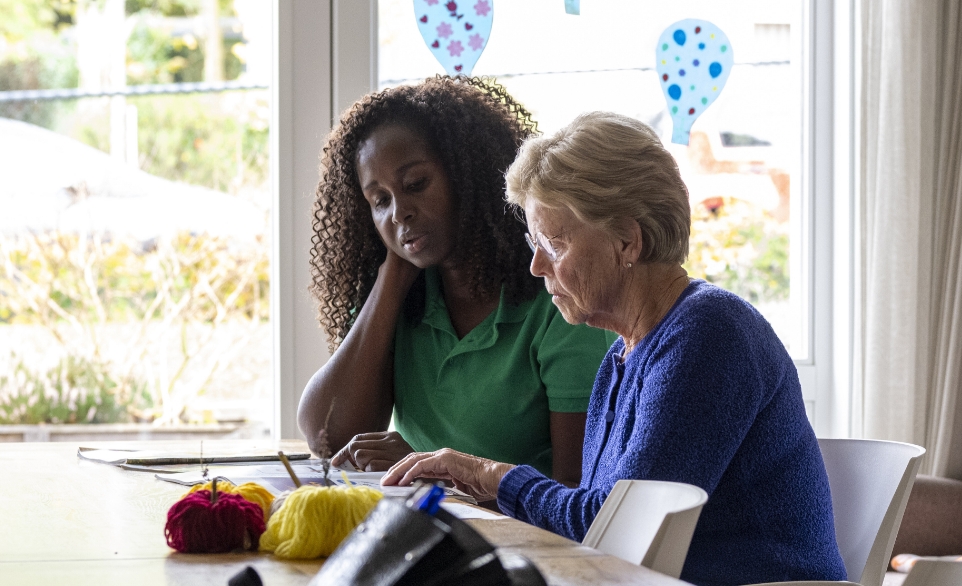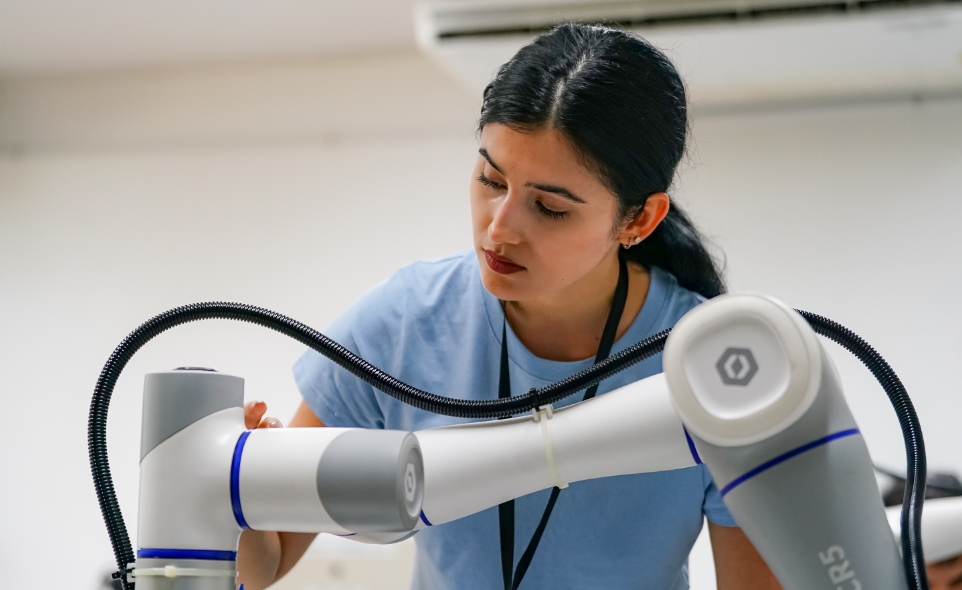
For years, the term artificial intelligence (AI) has hovered around the healthcare conversation like a sci-fi cloud—fascinating, futuristic, and often misunderstood. But now, AI is no longer a distant promise or boardroom talking point. It’s making its way into the heart of patient care—quietly, effectively, and in ways that are changing lives.
In the social care and homecare sectors, AI is starting to shift from buzzword to bedside ally. And at Big Sister, we’re not just watching this evolution—we’re part of it. We believe in using technology with a human touch, and AI is proving that it can do just that: support carers, streamline services, and improve outcomes for the people who matter most—our patients.
What Exactly Is AI in Healthcare?
Let’s strip back the jargon. At its core, AI is a tool that mimics human decision-making by using data and algorithms. In healthcare, it can learn patterns from large amounts of information—like health records, medication data, or even speech patterns—and then use that knowledge to:
- Predict risks
- Make recommendations
- Streamline processes
- Spot problems early
- Deliver personalised care
Unlike traditional software, AI evolves with use. It gets smarter over time. But it doesn’t replace humans—it enhances them. Especially in a sector like care, where empathy and instinct are irreplaceable.
So, How Is AI Actually Helping Patients?
Here’s a look at where AI is no longer theoretical—it’s practical and already at work, improving everyday care across the UK and beyond.
-
Predicting Health Risks Before They Become Emergencies
One of AI’s greatest strengths is its ability to analyse risk factors early, before symptoms become critical. For example, AI tools can study patient data—like mobility records, medication logs, or wearable tech stats—and alert carers if someone is at high risk of falling, developing pressure sores, or experiencing a decline in mental health.
By acting early, we’re preventing hospital admissions, reducing 999 calls, and offering peace of mind to families.
Real-world example:
Some AI tools used in domiciliary care now alert providers when a client’s walking pattern changes—often a subtle sign of infection or decline. This allows care teams to intervene before a GP visit turns into a hospital stay.
-
Freeing Up Time for Carers to Be Human
One of the biggest complaints in the care sector is the amount of time spent on admin. AI helps here, too.
- Automated scheduling ensures rotas are created efficiently and fairly.
- Voice-assisted documentation allows carers to speak rather than type, reducing errors and saving time.
- Compliance alerts keep providers updated with regulation deadlines and checks, reducing human oversight.
This means more time spent caring, less time ticking boxes. And that’s what we all want, isn’t it?
-
Creating Personalised Care Plans That Evolve with the Patient
Gone are the days of rigid, one-size-fits-all care plans. AI can continuously adapt to a patient’s changing needs. It learns from behavioural patterns, daily observations, mood logs, and even biometric data to shape a care approach that reflects the real person—not just their condition.
This kind of personalisation means patients feel seen, understood, and respected, which improves emotional wellbeing as well as clinical outcomes.
-
Supporting Communication for Those with Barriers
Not all patients communicate in traditional ways, and that’s where AI can bridge the gap.
- Text-to-speech tools allow non-verbal individuals to express themselves.
- Translation apps help carers support clients from diverse backgrounds.
- Predictive typing tools empower those with mobility issues.
This tech-enabled communication restores dignity, autonomy, and connection.
-
Reducing Errors and Improving Safety
AI doesn’t get tired, distracted, or emotionally overwhelmed. That’s why it’s an ideal safety net.
- Medication AI systems double-check prescriptions, flagging interactions or dosage errors.
- Fall prediction models notify care teams when someone is at risk—often before the person themselves realises.
- AI-based anomaly detection systems raise alerts for unusual activity patterns—useful for safeguarding vulnerable individuals.
While carers still make the final decisions, AI is the extra set of eyes ensuring nothing gets missed.
Watch Our Playlist: Digital Healthcare: AI & Beyond
At Big Sister, we know adopting digital tools can feel overwhelming. That’s why we’ve created a dedicated YouTube playlist just for you: Digital Healthcare: AI & Beyond
Inside the playlist, you’ll find:
- Real-life examples of AI being used in care settings
- Interviews with tech partners and care managers
- Tips on how to start integrating AI tools without losing your human touch
Whether you’re tech-savvy or just curious, this series will help you feel informed and inspired.
“But Isn’t AI Replacing Human Jobs?”
No. And it shouldn’t.
In care, AI is not about replacing people—it’s about supporting them. Carers bring compassion, instinct, and emotional intelligence—none of which AI can replicate.
Instead, think of AI as:
- Your digital assistant, not your competitor
- Your behind-the-scenes helper, not your replacement
- A way to lift the load, not remove your role
The care sector is under pressure. Staffing shortages, high demand, burnout—it’s real. AI helps us manage that pressure better.
What About Data and Privacy?
It’s a valid concern. Any use of AI must follow strict GDPR and NHS data guidelines, ensuring privacy, consent, and ethical use. The best tools are designed with compliance at their core—secure, anonymised, and fully auditable.
Before adopting AI, always ask:
- How is data collected and stored?
- Who has access to it?
- Can patients opt in or out?
Digital healthcare must be built on trust first, technology second.
The Big Sister Perspective: Human-Centred Innovation
Our vision at Big Sister is bold but simple: Let’s build a future where technology supports care—not replaces it. We don’t want soulless systems. We want systems that empower real people to do their best work.
Through our Care for the Future initiative and ongoing investment in digital transformation, we’re helping care providers:
- Embrace digital tools at their own pace
- Explore AI safely and ethically
- Stay competitive while staying compassionate
And as always, we’re here to walk the journey with you.
Final Thoughts: AI Is Already Here—And That’s a Good Thing
AI in healthcare isn’t futuristic. It’s now. It’s already preventing falls, supporting carers, empowering patients, and reducing burnout. It’s helping us do more—with less stress, fewer errors, and better outcomes.
It’s not the full solution. But it’s a powerful tool—and it’s one we should use wisely.
Because when done right, AI doesn’t just save money. It saves time. It saves stress. And most importantly—it saves lives.
Ready to Learn More?
Watch the full Digital Healthcare: AI & Beyond playlist on YouTube
And if you’re looking for support to bring AI and digital tools into your business, the Big Sister team is here to help.













